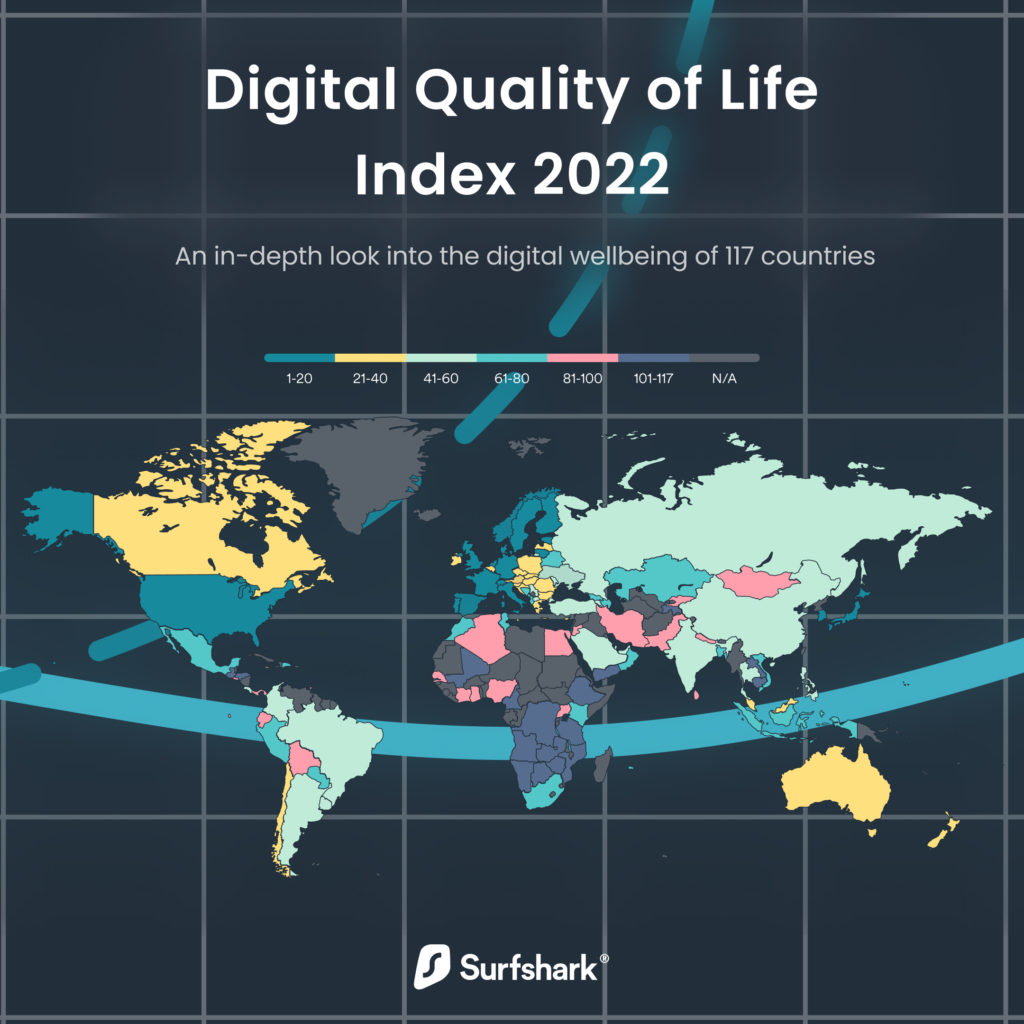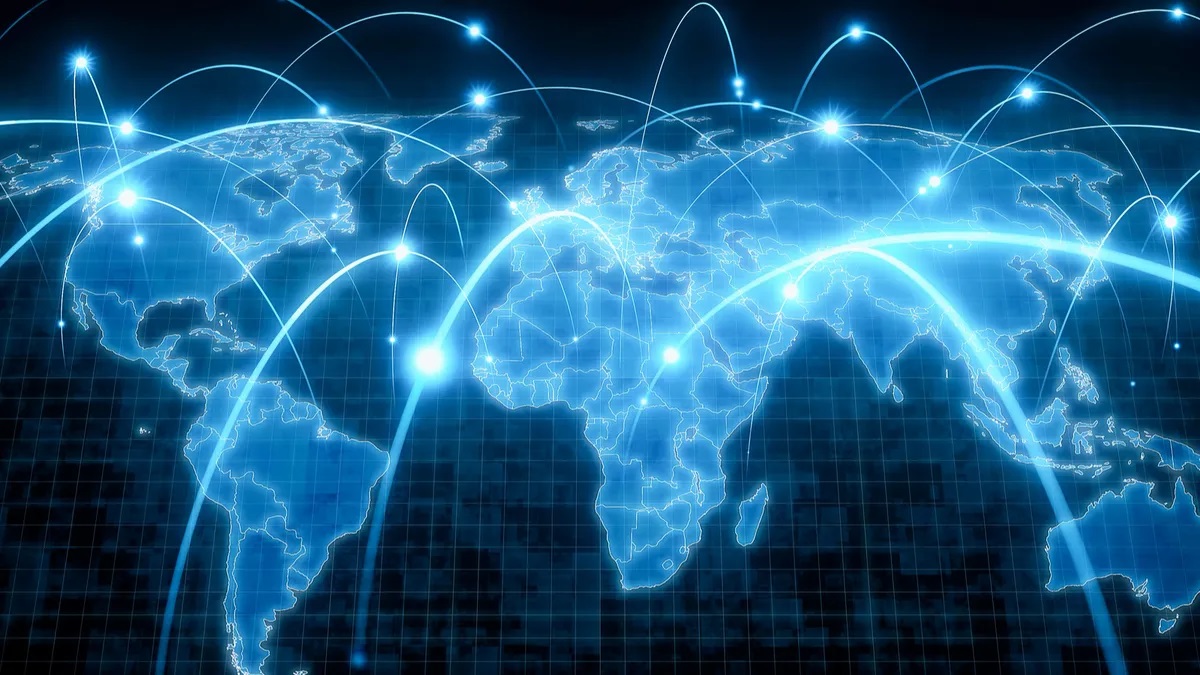Surfshark’s most recent Digital Quality of Life (DQL) Index ranks Canada 26th in the world by overall digital wellbeing and is outranked by the U.S. Our country has dropped by six positions since last year’s edition, falling from 20th to 26th.

The study covers 92% of the global population and indexes 117 countries by looking at five fundamental pillars of digital life – internet affordability and quality, e-infrastructure, e-security, and e-government.
Below you’ll see the key findings about Canada:
- Canada’s internet affordability ranks 33rd in the world. To afford mobile internet, Canadians have to work 60 times more (4 min 57 s/month) than Israeli citizens, for whom the most affordable 1GB package costs only 5 s of work monthly. Meanwhile, fixed broadband costs Canadian citizens around 84 minutes of their precious working time each month.
The global digital divide is now deeper than ever
Globally, broadband is getting less affordable each year. Looking at countries included in last year’s index, people have to work six minutes more to afford broadband internet in 2022. In some countries, such as Ivory Coast and Uganda, people work an average of 2 weeks to earn the cheapest fixed broadband internet package. A similar trend was observed last year. With the current inflation, the pressure on low-income households that need the internet has become even heavier. Surfshark’s study also found that countries with the poorest internet connection have to work for it the longest.
- Canada’s internet quality, considering internet speed, stability, and growth, ranks 23rd in the world and is 29% better than the global average.
- Since last year, mobile internet speed in Canada has improved by 5% (4.7 Mbps), and fixed broadband speed has grown by 12.4% (20.7 Mbps).
- Compared to the U.S., Canada’s mobile internet is 15% slower, while broadband is 9% slower.
- Out of all index pillars, Canada’s weakest spot is e-security, which needs to improve by 60% to match the best-ranking country’s result (Greece’s).

Global overview: Overall, 7 out of 10 highest-scoring countries are in Europe, which has been the case for the past three years. Israel ranks 1st in DQL 2022 pushing Denmark to second place after its two-year lead. Germany ranks 3rd, and France and Sweden round up the top five of the 117 evaluated nations. Congo DR, Yemen, Ethiopia, Mozambique, Cameroon are the bottom five countries. For the Silo, Paulius Udra.
Supplemental- According to our most recent search Engine result, The world’s most expensive country for fixed-line broadband is Eritrea, with an average package price of $2,666 usd per month.
